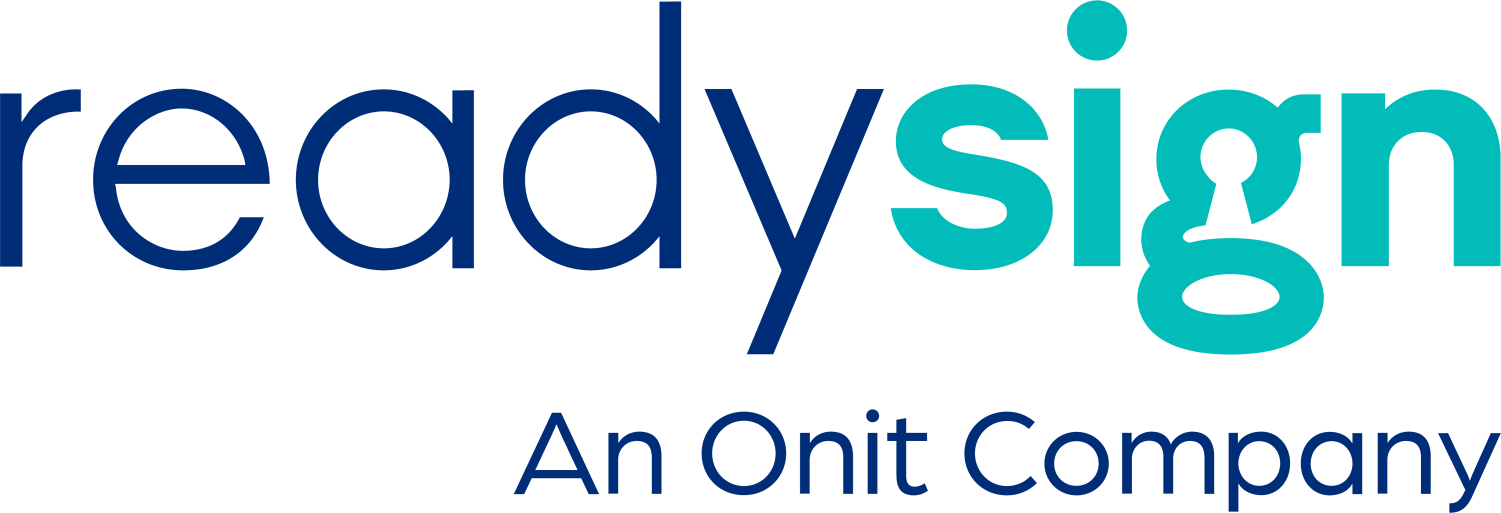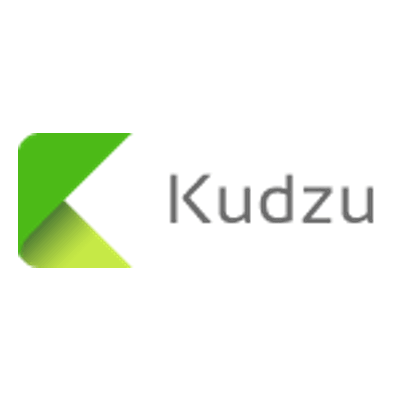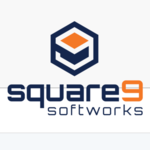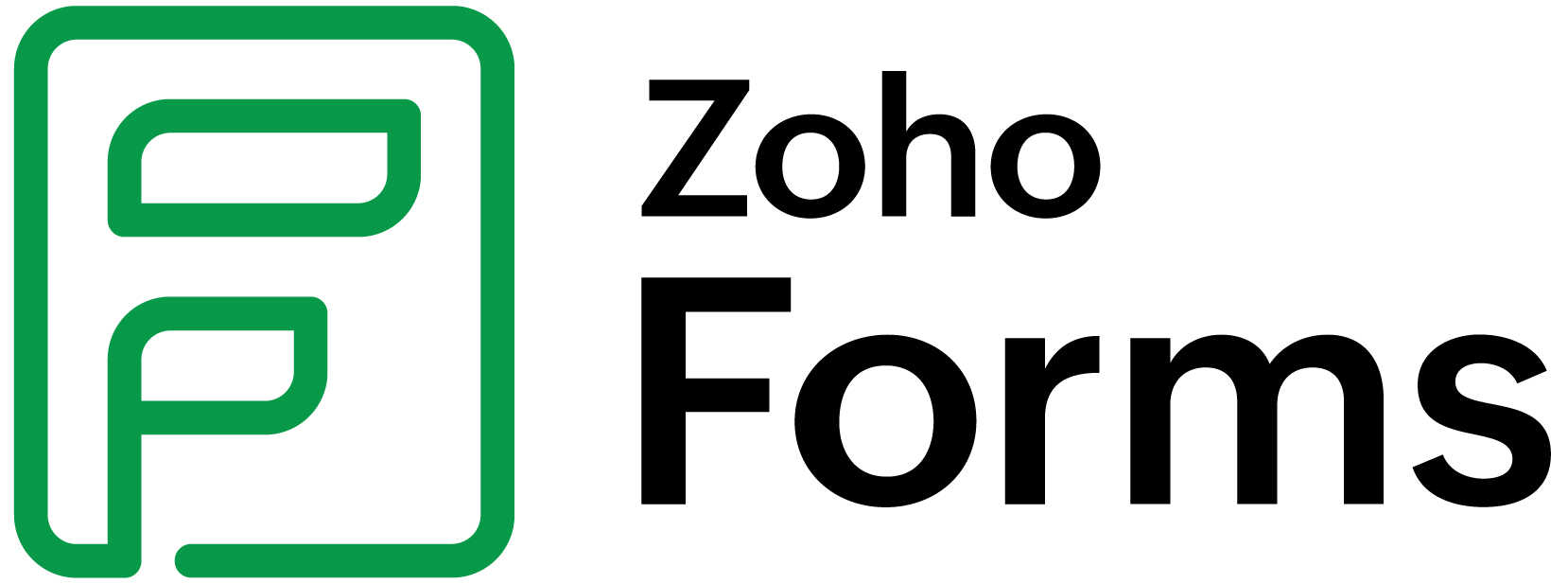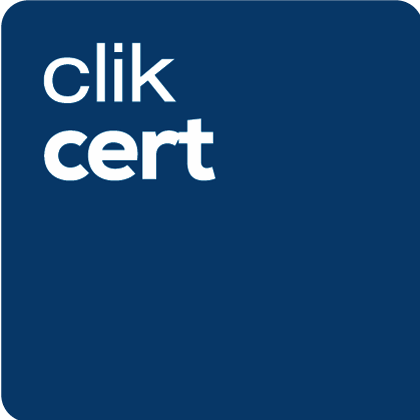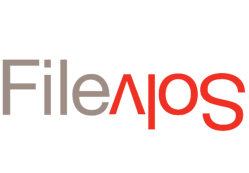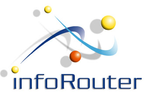Yes, form management software is made to work on a variety of platforms and devices. This implies that you may view and manage forms on any device running any operating system, including Windows, Mac, iOS, or Android, and from any device, including computers, tablets, and smartphones. No matter what device you're using or where you are, this flexibility lets you stay on top of your paperwork.
List of 20 Best Form Management Software
ReadySign is a e-signing solution that removes the complexities and frustrations of traditional signing methods. With transparent pricing and fast turnaround times, businesses of all sizes can enjoy our user-friendly platform without worrying about o...Read More ReadySign
Experience the power of HighGear, the premier no-code workflow automation software. Empower your business users to effortlessly create and manage enterprise-level workflows. Trusted by top companies, HighGear increases productivity, ensures complianc...Read More HighGear
Vines™ by Kudzu Software solution for managing growth, change, and innovation in the digital age. Our enterprise forms management system streamlines the process, empowering businesses to stay ahead of the curve. With Vines�...Read More Kudzu Vines
Google Forms, a state-of-the-art tool that revolutionizes the creation of surveys, quizzes, and forms. Its advanced capabilities include real-time collaboration, professionally designed templates, and seamless integration with other Google Workspace...Read More Google Forms
Formatta solution for streamlining form creation, data capture, and workflow automation. Say goodbye to manual processes and hello to seamless digital form management. Experience increased productivity and efficiency with its flexible software that s...Read More Formatta
Dedoco is a workflow management solution for informed decision-making. Our platform empowers you to seamlessly digitize your processes without compromising the confidentiality of your clients information. Trust in our state-of-the-art technology for...Read More Dedoco
Elementor is website building tool that puts the control in your hands. With its user-friendly drag-and-drop interface, endless customization options, and automatic updates, Elementor simplifies the process of creating a website. Say goodbye to codin...Read More Elementor
Formplus PDF Builder is a tool for making professional and personalized PDF documents. With our easy-to-use platform, you have access to a wide range of customization features to design impressive documents. Convert your current PDFs into online form...Read More Formplus PDF Builder
BEEKAI is a form application builder designed to simplify your workflow. With an intuitive, visual flow diagram, creating powerful forms has never been easier. Say goodbye to coding and hello to a seamless user experience. BEEKAI offers best-in-class...Read More BEEKAI
Nerdy Form solution for effortless form creation and integration on your website, no coding skills needed. Our versatile platform offers a variety of forms, from lead generation to quizzes and feedback, along with the option to upload files. With the...Read More Nerdy Form
Forms.io by 500apps is a solution for creating stunning online forms. Our user-friendly drag-and-drop interface allows you to effortlessly design responsive forms without any coding. With a variety of customizable themes to choose from, you can easil...Read More Forms.io by 500apps
SurveyJS - the leading survey software that streamlines the creation of countless surveys and forms for your needs. Thanks to its user-friendly drag-and-drop interface, designing surveys has never been simpler. Our form libraries seamlessly integrate...Read More SurveyJS
Square 9 GlobalCapture is a data extraction solution designed to simplify and automate data capture processes. With its advanced features and intuitive interface, this software streamlines data capture and analysis with ease. Its robust data storage...Read More Square 9 GlobalCapture
Visual eMerge is a software designed to streamline document management and enhance productivity. Featuring an intuitive interface and powerful features, its the perfect tool for companies looking to streamline workflows and improve efficiency effortl...Read More Visual eMerge
Zoho Forms is a leading form automation software that simplifies data collection with its user-friendly form builder. Within minutes, you can create online forms for third-party use, thanks to its advanced features. This robust software streamlines t...Read More Zoho Forms
FormDocs is a versatile and robust software designed to convert paper forms into customizable digital formats. Our cutting-edge features, including auto-fill, calculations, and secure storage, streamline workflows and enhance accuracy for businesses...Read More FormDocs
Tallyfy is a workflow automation solution that revolutionizes process optimization, approval streamlining, and real-time documentation. With cutting-edge features like AI-powered templates, personalized automation, and seamless integration, Tallyfy i...Read More Tallyfy
Clik Cert is a certification software for field service professionals. It offers tailored features to simplify the creation, organization, and monitoring of digital certificates, forms, and assessments. This cutting-edge solution revolutionizes the c...Read More Clik Cert
FileSolve - the premier form management software designed for your organization. Simplify the creation and management of electronic forms with our streamlined solution. Share your forms effortlessly across all devices, including desktops, mobiles, an...Read More FileSolve
infoRouter is a document management solution that simplifies your workflow and drives productivity. Advanced features such as automated version control and easy document retrieval make it the perfect fit for businesses of all sizes, ensuring smooth o...Read More infoRouter
Learn More About Form Management Software
- What Is Form Management Software?
- What Are The Recent Trends In Form Management Software?
- Benefits Of Using Form Management Software
- Important Factors To Consider While Purchasing Form Management Software?
- What Are The Key Features To Look For In Form Management Software?
- Why Do Businesses Need Form Management Software?
- How Much Time Is Required To Implement Form Management Software?
- What Is The Level Of Customization Available in Form Management Software?
- Which Industries Can Benefit The Most From Management Software?
- Conclusion
What Is Form Management Software?
An effective tool for streamlining the creation, distribution, collection, and administration of different forms inside an organization is form management software. It enables companies to digitize their forms, reducing the need for paper records and increasing productivity. Drag-and-drop form builders, editable templates, and pre-made form elements are just a few of the capabilities that form management software provides to assist businesses in creating forms that seem professional.
This makes it simple for people who don't know how to code or design forms. This program streamlines the distribution process in addition to generating forms. Forms can be integrated on a website, distributed via social media, or sent by email. This facilitates rapid response collection and broader audience outreach. The capacity of form management software to gather and retain data in one place is one of its main advantages.
This lowers the possibility of human error and does away with the requirement for manual data entry. Additionally, the software enables automatic data validation, guaranteeing the accuracy of all the information gathered. Additionally, sophisticated security protections are provided by form management software to safeguard private information. This covers user authentication, SSL certificates, and encryption.
Users may rest easy knowing that their data is always safe and available thanks to its backup and recovery options. The reporting and analytics features of form management software are another important aspect. It offers comprehensive insights into the gathered data and produces reports in real time. Companies can utilize this information to enhance their procedures and make well-informed decisions.
What Are The Recent Trends In Form Management Software?
Over time, form management software has changed dramatically to meet the ever-evolving demands of businesses. This area has seen some noteworthy developments in recent years that have changed how businesses manage and process forms.
1. Make The Transition To Automation: The move toward automation is one of the main themes in form management software. The days of manually filling out and processing forms are long gone thanks to technological advancements. Nowadays, companies are using form management software that provides automated functions including conditional logic, electronic signatures, and data auto-population. In addition to saving time and effort, this also lowers the possibility of mistakes and boosts productivity.
2. Utilizing Third-Party ToolsL: Integrating form management software with other corporate tools is another new trend. Businesses now demand form management software that integrates easily with their current systems, such accounting software, marketing automation, and CRM, rather than being a stand-alone solution. This guarantees data consistency across many platforms and expedites procedures.
3. Solutions That Are Mobile-Friendly: Employees and clients must access and complete forms while on the go in the fast-paced world of today. As a result, form management software is increasingly becoming mobile-friendly. Both sides may fill out forms with ease thanks to mobile-responsive forms, which make it simple to access and gather data on any device.
4. Pay Attention To Data Security: Businesses now place a high premium on data security due to the growing volume of sensitive information being gathered via forms. Consequently, providers of form management software are making significant investments in security features including multi-factor authentication, encryption, and adherence to data protection laws. Customers may rest easy knowing their data is protected thanks to this.
5. Coming To Terms with Artificial Intelligence: Form management software is starting to incorporate artificial intelligence (AI), and this trend is only going to get stronger. Form management software with AI capabilities may identify mistakes, automatically fill in data, and even offer design recommendations. This enhances the accuracy and efficiency of the form-filling procedure in addition to saving time.
Benefits Of Using Form Management Software
A useful tool for streamlining and arranging the creation, administration, and distribution of forms is form management software. The use of paper forms is not only antiquated but also ineffective and time-consuming in the current digital era. Form management software, which has many advantages for companies of all sizes and sectors, enters the picture here.
The main advantages of utilizing form management software and how it may enhance your entire form management procedure will be covered in this buyer's guide.
1. Enhanced Productivity And Efficiency: The notable boost in productivity and efficiency that comes with utilizing form management software is one of its main advantages. The creation, distribution, and collection of data can be laborious and time-consuming when using traditional paper forms. By automating these chores, form management software streamlines the entire process and gives your staff members more time to concentrate on other crucial duties.
2. Enhanced Precision Of Data: Inaccurate data may be gathered as a result of manual data entry's high error rate. This risk is removed by form management software, which automatically collects and saves data straight from the forms. In addition to reducing human error, this guarantees that all data is kept in one place, which facilitates access and analysis.
3. Improved Security of Data: Due to the constant possibility of them being misplaced, broken, or stolen, using paper forms might present a serious security risk. Form management software lowers the risk of data breaches by securely storing all forms and data in the cloud. This is particularly important for sensitive forms that hold private or sensitive data.
4. Instantaneous Data: Analysis and Access Real-time access to form data is made possible by form management software. As soon as data is received, you can access and analyze it, giving you important insights into how your business operates and how your customers behave. Future company strategies and decision-making can both benefit from this.
5. Adaptable Templates: The flexibility to develop forms that are customized to your unique needs is another benefit of employing form management software. This increases the effectiveness and efficiency of the form generation process by allowing you to include as many fields and queries as needed. Additionally, because customisable forms are made to be both aesthetically pleasing and easy to use, they can significantly improve the user experience.
6. Improved Cooperation And Interaction: Team members' and stakeholders' cooperation and communication can be enhanced via form management software. Teams may collaborate in real time, cutting down on delays and increasing overall efficiency, when they have access to forms and data from any location. In order to keep everyone informed and on track, the software also enables automated notifications and reminders.
Important Factors To Consider While Purchasing Form Management Software?
Introduction: Because it makes the process of developing, distributing, and maintaining forms more efficient and straightforward, form management software is a useful tool for companies of all sizes. It can be difficult for consumers to select the best solution for their unique needs when there are so many options on the market.
To assist you in making an informed choice, we will go over the crucial elements to take into account when buying form management software.
1. Form Creation And Customization: Creating and customizing forms is one of the main purposes of form management software. Evaluating the software's ability to generate several forms, including offline, web, and PDF forms, is crucial. In order to produce forms that seem professional, it is also essential to take into account the customization choices, such as the ability to incorporate your company's branding, logos, and colors.
2. Compatibility And Integration: It's crucial to make sure software works well with your current systems before making an investment. Take into account whether the form management software works with the project management or CRM software you now use. In addition to saving time, this will increase workflow efficiency.
3. Collaboration And Sharing: For companies that deal with numerous teams or clients, the capacity to collaborate and share forms is essential. Seek out a form management program that enables several people to view and edit forms at once. In order to safeguard sensitive information, it should also offer safe sharing choices, such password protection.
4. Data Collection And Analysis: In order for firms to make wise decisions, data collection and analysis are essential. As a result, selecting form management software with sophisticated capabilities like conditional logic, data validation, and reporting tools is crucial. Accurate data collection and efficient analysis are made possible by these features.
5. Mobile Responsiveness: Having form management software that is responsive to mobile devices is essential in the current digital world. This implies that the program should be able to adjust to various screen sizes and hardware configurations without sacrificing usability or functionality. This is particularly crucial for companies that operate off-site or have a remote workforce.
6. Security And Compliance: When selecting a form management software, security and compliance ought to be given top consideration. To safeguard sensitive data, look for software that provides secure data storage and encryption. To prevent legal issues, the software should also abide with data protection laws like the CCPA and GDPR.
7. Customer Assistance And Training: Businesses need to provide effective customer assistance and training, particularly during the installation phase. Select a form management system that provides thorough training courses and customer service channels including phone, email, and live chat. This will help you get the most out of the software and guarantee a seamless transfer.
What Are The Key Features To Look For In Form Management Software?
There are a number of important characteristics to consider when selecting the best form management software for your company. These features will maximize your overall productivity and efficiency in addition to streamlining your form generation and management procedures.
1. Ease Of Use: The most important factor to take into account when choosing Form Management Software is how easy it is to use. Choose a platform that has an easy-to-use interface so that you and your team can develop, modify, and maintain forms without the need for technical knowledge.
2. Customization Options: When it comes to forms, every organization has different needs and specifications. In order to enable you to design forms that are in line with your brand and particular requirements, the software you use should have a range of customization choices, like drag-and-drop form builders, configurable templates, and extensive layout options.
3. Mobile Compatibility: Selecting a form management software that is mobile-friendly is essential since an increasing number of individuals are using their mobile devices to access the internet. By doing this, you can make sure that your forms are mobile-friendly and offer users who are completing them on their phones or tablets a flawless experience.
4. Integration Capabilities: CRM, email marketing, and project management software are just a few examples of the systems and tools that your selected form management software should be able to readily interact with. This will guarantee that all of your data is current and synchronized while also streamlining your workflow.
5. Advanced Data Collection: Gathering precise and useful data is the main goal of using form management software. To assist guarantee the quality and accuracy of the data gathered, look for features like conditional logic, data validation, and multi-page forms.
6. Security And Data Protection: Selecting a platform that places a high priority on data security is crucial given the growing risk of cyberattacks. To protect your sensitive data, look for form management software that supports encryption, secure hosting, and adherence to data protection laws.
7. Analytics And Reporting: Improving your business processes requires the ability to monitor and evaluate form data. Seek out software that offers comprehensive analytics and reporting capabilities, including information on user behavior, conversion rates, and form completion rates.
8. Customer Service: Finally, pick a form management program that provides dependable customer service. To be sure you can obtain assistance whenever you need it, look for features like live chat, email support, and an extensive knowledge library.
Why Do Businesses Need Form Management Software?
To automate and optimize their data gathering, distribution, and form production processes, businesses use form management software. Businesses may design, manage, and track a variety of forms with this software, including purchase orders, employee feedback forms, and customer surveys. Businesses can save time and money by collecting and organizing data more effectively with the use of form management software.
Businesses can ensure accurate and dependable data by using this software to do away with the requirement for manual data entry and lower the possibility of human error. Additionally, form management software makes it easier for team members to collaborate and communicate with one another, enabling real-time form draft updates and feedback. This guarantees a quicker response time for form completion and uniformity and correctness in the form's design and content.
Furthermore, form management software provides customization features like branding and design templates, which make it simple for companies to produce forms that seem professional and complement their brand. In order to guarantee the precision and comprehensiveness of form submissions, it also permits the integration of conditional logic, computations, and validations.
The ability of form management software to interface with other corporate systems and tools, such accounting and CRM software, is an additional advantage. Businesses may easily move data gathered from forms to other systems thanks to this connectivity, which enhances workflow and overall efficiency. Furthermore, to safeguard private data gathered via forms, form management software offers strong security features including data encryption and access controls.
Businesses may rest easy knowing that their data is secure and complies with data privacy laws thanks to this. To sum up, form management software is a crucial tool for companies trying to increase overall productivity, optimize form-related procedures, and improve data accuracy and efficiency. Any firm, regardless of size or industry, can profit from its features and advantages.
How Much Time Is Required To Implement Form Management Software?
The size of your company, the intricacy of your current form procedures, and the particular features and customisation needed for your business requirements are some of the variables that might affect how long it takes to adopt form management software. The implementation procedure typically takes a few days to a few weeks to complete.
Since it requires integrating the program with your current systems, importing and organizing your form templates, and configuring user permissions, the initial setup of the software typically takes the longest. Several days to a week may pass, depending on how complicated it is. Training your team to utilize the program efficiently comes next after the initial setup is over.
Depending on how big your team is and how tech-savvy they are, this could take a few days or perhaps a week. You can begin using the program for your form procedures as soon as the training is over. Your staff may need some time to adjust to the new system, but with the right guidance and assistance, the process should go smoothly and effectively.
The time needed for implementation should be justified by the long-term advantages of higher productivity and efficiency because form management software is made to automate and streamline your form procedures. In order to guarantee a seamless implementation process and handle any issues that may come up, constant collaboration with the software vendor is essential.
What Is The Level Of Customization Available in Form Management Software?
Different levels of customization are available in form management software to accommodate users' unique requirements. Depending on the features and capabilities of the software, these levels of customisation might be anything from simple to complex. Form management software essentially lets users alter the appearance and design of their forms. This could entail picking a template, deciding on a typeface and color scheme, and adding a logo or branding.
For people who want a straightforward form that is easy to set up and use, basic customization choices are perfect. At the intermediate level, users have the ability to alter the questions and fields on their forms. To gather the required data, they can change the form's layout, add new fields, and reorganize existing ones. Businesses and organizations with particular data collection requirements might benefit from this degree of customisation.
Creating conditional logic into forms is part of the advanced level of customization. This implies that specific questions or fields will only show up depending on the user's prior answers. For instance, a new series of questions pertaining to that response will show up if a user chooses "Yes" to a question. Complex forms that need multiple pathways depending on the user's input require this degree of flexibility.
Options for personalizing the submission process are also available in certain form management software. This could entail defining the location of the provided data's storage and establishing automated user notifications or answers. Additionally, advanced options enable interaction with other systems and tools, including marketing automation platforms or CRM. It is crucial to remember that different form management software may offer varying degrees of flexibility.
While some might just offer basic customization tools, others might provide more sophisticated customization possibilities. It is crucial to assess a form management software's customization features to make sure it fits your unique requirements.
Which Industries Can Benefit The Most From Management Software?
A strong tool for streamlining and simplifying the creation, distribution, and administration of forms is form management software. This software's sophisticated capabilities and easy-to-use interface have made it a great asset for companies in a variety of sectors. Even though form management software has many advantages, some businesses can profit more than others. To assist you in making an informed choice for your company, we will examine the sectors that stand to gain the most from this software in this article.
1. Healthcare: Patient registration, medical history, consent forms, and insurance claims are just a few of the many forms that the healthcare sector handles on a regular basis. Healthcare providers can digitize these forms and make them easily accessible, editable, and securely kept by using form management software. This ensures a seamless and well-organized workflow by reducing the possibility of mistakes and missing forms in addition to saving time and effort.
2. Education: Form management software can automate course registration, student enrollment, and other administrative duties in the education sector. In addition to cutting down on paperwork, this offers a more accurate and effective method of managing student records. Furthermore, by detecting trends and patterns, the software's data analysis features can help with decision-making and enhance the general educational experience for students.
3. Human Resources: HR departments handle a wide range of paperwork, including benefit enrollment, performance reviews, and job applications. HR specialists can save time and money by streamlining these procedures with form management software. Additionally, the program makes it simple to track and monitor the forms, guaranteeing adherence to company rules and guidelines.
4. Government: The government sector handles a wide range of forms, such as applications, permits, and tax forms. Form management software offers a safe and effective method of handling these forms, lowering the possibility of mistakes and enhancing data precision. Additionally, the program speeds up the approval process with features like electronic signatures, which makes it a perfect choice for government organizations.
5. Finance: Form management software may streamline credit checks, loan applications, and other financial activities in the finance sector. This offers a safe method of handling private financial data in addition to expediting the loan approval procedure. The software's form automation features also lessen the possibility of mistakes, guaranteeing financial institutions enter data accurately.
Conclusion
To sum up, form management software is an essential tool for companies trying to optimize their procedures for managing and collecting data. You can choose the best software for your company by carefully weighing the important features and considerations listed in this buyer's guide. Prioritizing your unique requirements and objectives is essential in order to choose software that supports your goals.
Make sure the software you select meets your specific needs, whether they are data security, offline functionality, or configurable form templates. Next, think about how easy it is to use the software and how much technical assistance the company offers. While dependable customer assistance can guarantee a seamless setup and usage experience, a well-designed and user-friendly platform can save time and money.
For future expansion and interoperability with current systems, make sure to evaluate the software's scalability and integration capabilities. This will enable smooth data flow and increased efficiency in addition to saving you money and headaches in the future. Last but not least, make sure the provider is dependable and trustworthy by carefully investigating their reputation and performance history.
You can learn a lot about the software's functionality and user happiness by reading reviews and asking other companies in related industries for recommendations. You may choose a form management program that matches your objectives, stays within your budget, and advances your company by carefully evaluating your options and taking these aspects into account. Utilize this buyer's guide to its fullest potential and make an informed choice that will benefit your company's expansion and success.
Form Management Software FAQ's
Can Form Management Software Be Accessed Across Multiple Devices And Platforms?
Is Form Management Software Future-Proof And Adaptable To Emerging Technologies Like Ai, Blockchain or Iot?
Indeed, the majority of contemporary form management software platforms are made to be easily adaptable to new technologies like blockchain, artificial intelligence, and the Internet of Things. In order to satisfy changing commercial and technology demands, they are continuously updated and incorporating new features.
This helps you remain ahead of the curve by guaranteeing that your forms will continue to work effectively and interact with new technologies without any issues. Therefore, spending money on quality form management software can undoubtedly help your company get ready for the future.
Is There A Free Trial Offered To Assess Form Management Software Before Committing?
Indeed, a free trial period is provided by a number of respectable form management software suppliers so that customers can evaluate the program before committing. Users can test out the software's features and functionality in this way to see if it suits their needs.
Users can develop and manage forms, gather data, and experiment with additional features during the trial period. In order to provide customers a full experience, some companies even provide a free trial that includes all services.
Does Form Management Software Offer Data Security Features And Meet Regulatory Compliance Standards?
Indeed, data security capabilities are available in form management software to guarantee the privacy and security of the information gathered via forms. This covers user authentication, safe storage, and encryption.
Furthermore, a lot of form management software programs comply with legal requirements like GDPR and HIPAA, giving businesses peace of mind when managing private information. Selecting a form management program that satisfies your unique compliance requirements requires considerable consideration.
Can Form Management Software Integrate Seamlessly With Existing Tools And Platforms?
Yes, businesses may easily streamline their form operations because the majority of form management software currently is made to interact effortlessly with already-existing tools and platforms.
Form management software ensures maximum efficiency and accuracy by eliminating the need for manual data entry and saving time through interfaces with well-known platforms such as CRM systems, email marketing tools, and project management software. Additionally, it enables the automation of processes and centralization of data, which enhances decision-making and collaboration.

